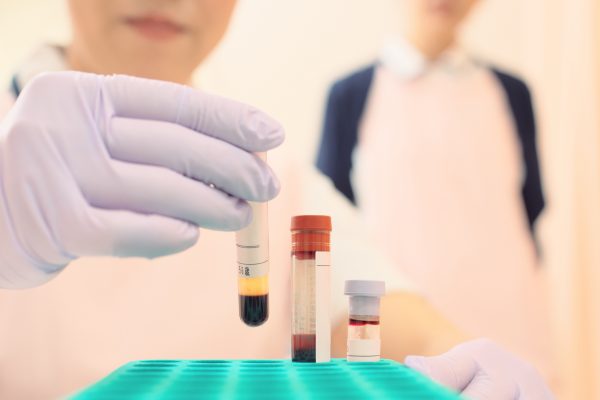
Haemophilia A is a bleeding disorder caused by the deficiency of clotting factor VIII (FVIII). In this phase II clinical trial, the effectiveness and safety of rondaptivon pegol, a von Willebrand factor (VWF)-binding aptamer, in the treatment of both severe and nonsevere haemophilia A were evaluated. The results, recently published in Blood, showed that rondaptivon pegol is safe and effective in increasing plasma levels of VWF/FVIII in patients with haemophilia A, emerging as a promising treatment for these patients.
Factor VIII (FVIII) circulates in a noncovalent complex with von Willebrand Factor (VWF), the latter determining FVIII half-life. In the phase I of this clinical trial, the VWF-binding aptamer rondaptivon pegol increased plasma levels of VWF/FVIII in healthy volunteers. The current study assessed the safety, pharmacokinetics, and pharmacodynamics of rondaptivon pegol in patients with haemophilia A.
Methods
In this study, 19 patients with haemophilia A were included. Eight patients had mild haemophilia, 2 had moderate haemophilia and 9 had severe haemophilia. The patients received subcutaneous injections of rondaptivon pegol. After an initial dose of 3 mg on day 0 and 4, patients received weekly doses of 2 -9 mg until day 28. Adverse events, FVIII activity and VWF levels were measured. The follow-up period consisted of weekly blood sampling until day 56.
Results
No patients had severe adverse events during this study. Proof of concept was established because the contrast test for FVIII levels (day 35 minus baseline) was significant (P <0.0001). Similar results were obtained when performing separate analyses for the subgroups (nonsevere and severe haemophilia A). One week after the last subcutaneous injection of rondaptivon pegol, plasma levels of VWF antigen increased from a median of 97% at baseline to 323% on day 35, and returned to normal levels on day 56. The geometric mean half-life of rondaptivon pegol was 5.4 days. In severe haemophilia A, 6 doses of rondaptivon pegol increased the half-lives of 5 different FVIII products, from a median of 10.4 hours to 31.1 hours (range, 20.8-56.0 hours). Median FVIII increased from 22% to 48% in mild haemophilia A and from 3% to 7.5% in moderate haemophilia A.
Conclusion
Rondaptivon pegol is a first-in-class prohaemostatic molecule that extended the half-life of substituted FVIII approximately 3-fold and increased endogenous FVIII levels approximately 2-fold in haemophilia patients. Rondaptivon pegol appears to be a promising treatment for several patient groups. The improved half-life of VWF/FVIII could allow severe haemophilia patients, who often use prophylactic therapy every other day, to switch to a once-weekly regimen while maintaining FVIII levels above 1%. While rebalancing agents, such as emicizumab, have been introduced to the market and others will become available, patients who prefer to remain on FVIII products or cannot afford frequent prophylaxis could benefit from rondaptivon pegol. This is of interest to caregivers, reimbursement agencies, and particularly patients in developing economies, where the life expectancy disadvantage of haemophilia A is even more pronounced.